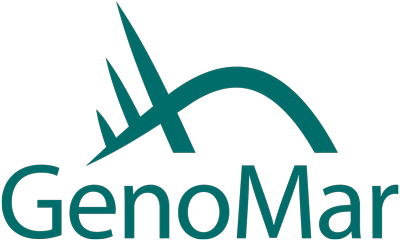It started with GIFT
The GenoMar-strain originates from an internationally collaborative selective breeding program, Genetically Improved Farmed Tilapia (GIFT), coordinated by the International Center for Living Aquatic Resources Management (ICLARM, now the World Fish Center) in cooperation with Norwegian and Philippine partners. The GIFT-strain was made from eight different populations of Nile tilapia collected from Africa and Asia and established in Munoz, Philippines.
The GIFT-project which lasted in the period 1988-1997 was funded by the Asian Development Bank, the United Nations, and ICLARM.
Scientifically breeding methods, a combination of between family and within-family selection with full pedigree information were used from the very beginning. The goal was to use the potential of selective breeding to increase important traits like growth rates, maturation and fecundity, and hardiness adapted to different environmental farming conditions.
Family-based selection incorporated
Selection based on information from family members of the fish and using Best Linear Unbiased Prediction (BLUP) statistics was fully applied to the breeding program of Nile tilapia. BLUP provides for very accurate estimates of genetic values, thereby giving accurate ranking of the fish, because it accounts for non-genetic differences between individuals such as a pond, temperature or hatching day. In addition, performance information from all relatives (parents, grandparents, offspring) in the pedigree are also included.
The third generation selected GIFT-strain showed in an evaluation study in Bangladesh, China, Philippines, Thailand, and Vietnam an average 18 percent greater body weight at harvest in China, and up to 58 percent in Bangladesh towards local strains.
GenoMar was founded
Professor Øystein Lie and coworkers founded GenoMar with commercial focus on DNA-marker based parentage assisted breeding and traceability. The company was headquartered in Oslo, Norway.
GenoMar acquired a copy of the ninth generation
Based on an agreement with the owner of the GIFT-strain, GIFT Foundation International, GenoMar acquired a copy of the ninth generation of the GIFT-strain. The company was given the commercial rights and the responsibility to continue the breeding program of the GIFT-strain copy. The strain was now named under the brand GenoMar Supreme Tilapia (GST).
After nine generations of selective breeding, a test showed that the growth of the GIFT- strain was more than twice as fast compared to a local commercial strain in China.
DNA information used in the breeding program
To produce the accurate family relationships, GenoMar initiated to use the DNA information (microsatellite markers) to identify the parents and family in the Nile tilapia breeding program.
Development of high-density genotyping tool
GenoMar and the Center for Integrative Genetics (CIGENE) signed a collaboration agreement for the development and application of a genotyping tool, a high-density SNP array for Nile tilapia. This tool opens to use genetic information to select for many favorable traits.
First commercial high-density genotyping tool used for streptococcosis resistance
GenoMar developed the first commercial tilapia genotyping tool, a high-density SNP array. We revealed more than 2 million places in the tilapia genome where fish differ from each other at a single nucleotide (single nucleotide polymorphism or SNP). Around 60 000 of those SNPs were used to construct the first SNP array.
Resistance against streptococcosis was implemented as a goal in the GenoMar breeding program. Since then, routinely experimental challenge tests against S. agalactiae have been performed and formed the basis for selection of families and individuals with better survival.
EW GROUP acquires GenoMar
EW GROUP acquires 100% of the shares of GenoMar Genetics from Norway Fresh. EW GROUP is a strategic holding company based in Germany. The activities of EW GROUP are comprised of the business areas of poultry/turkey and aqua species breeding, as well as animal health, nutrition and diagnostics. EW GROUP operates more than 200 subsidiaries in 45 countries worldwide, employing over 19,000 team members.
Genomic selection fully implemented
Genomic selection was included in the breeding program. Several thousand of fish are genotyped every year and genetic markers associated with favorable traits are used for selecting the best broodstock.
Compared with family-based selection, genomic selection is more precise on individual fish, and provides enhanced genetic gains. Since the genetic profile and the functions are better known, a vast number of tests on physical traits of relatives are not necessary to do.
30 years of tilapia breeding
30 generations of tilapia selection with science-based methods were performed in the nucleus. This is counted back from 1991 when family-based selection was incorporated. Read more here
Specific Pathogen Free certification granted
The breeding nucleus facility located at the Central Luzon State University in the Philippines received the world’s first Specific Pathogen Free certification for tilapia.
The disease-free status covers the most significant viral pathogens in tilapia aquaculture worldwide: TiLV (Tilapia Lake Virus disease), VER (Viral Encephalopathy and Retinopathy, also known as VNN) and Megalocytovirus (Iridoviral disease).
The Breeding and Genetics Centre in Brazil officially opened
The second tilapia nucleus in GenoMar, located in Monte do Carmo, Tocantins, Brazil was officially opened. It will have sufficient capacity to manage GenoMar´s breeding programs as well as to produce parent stock for its distribution operations and the further delivery of genetically improved fingerlings to customers in Brazil, Latin America, and the world.
The breeding centre has a high biosecurity level and an effective surveillance program for the most important tilapia pathogens worldwide.
The facility has an accredited quarantine department certified by the Ministry of Agriculture (MAPA) in Brazil that fulfills the government requirements to undertake a period of quarantine with any fish being imported or exported from the site.
